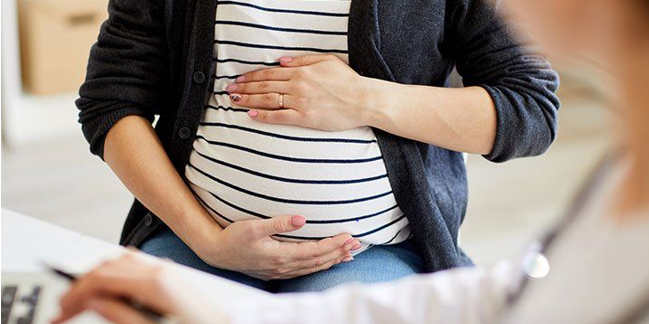Hepatitis is a type of liver infection caused by viruses, namely Hepatitis A, B, C, D, and E. If you are pregnant, you can transmit it to your baby. Don’t worry. Usually, it does not affect your baby or your pregnancy.
If your doctor suspects you have it or you may have it, they can help you manage it throughout pregnancy to reduce the risk of long-term liver illness for both you and your baby.
If you are pregnant and concerned about your and your baby’s health, visit a proficient ivf specialist in Delhi like Dr. Hrishikesh Pai.

During the consultation, Dr. Hrishikesh Pai will examine you and ask about the symptoms you are experiencing. If Dr. Pai suspects you have an infection or ailment based on your symptoms, he may recommend specific tests for a more thorough diagnosis. He will help you control your symptoms by recommending the safest and most effective treatment based on your test results.
Dr. Hrishikesh Pai is a leading infertility specialist in Delhi, India. He is the founder and medical director of the Bloom IVF Centre. With eight IVF units across India, it is one of the best IVF centre in Delhi.
Moreover, he is one of the top IVF doctor in Delhi, India, having 35+ years of experience in Obstetrics, Gynecology, and Infertility.
Continue reading this article to know how to protect yourself and your baby from Hepatitis.
How does Hepatitis B affect your child?
- Hepatitis B is the most frequent and severe type of liver infection. Because most people who are infected with the virus do not develop any symptoms, the condition is known as a “silent epidemic.”
- As a result, individuals can unknowingly spread the infection to anyone who comes into contact with them.
- Hepatitis B can be harmful during pregnancy because the infection can transfer from an infected mother to the baby. This can occur during a C-section or vaginal birth.
- According to studies, 9 out of 10 women with Hepatitis B will pass it on to their babies.
- Infants infected with the Hepatitis B virus have a 90 percent probability of developing a chronic, life-threatening condition. They may develop severe liver problems due to the infection if they are not treated.
Getting Tested for Hepatitis B
Dr. Hrishikesh Pai, a highly experienced IVF doctor in Delhi, recommends that every pregnant woman get a blood test for Hepatitis B as part of prenatal care. If Hepatitis B is diagnosed, your doctor can administer a series of Hepatitis B vaccines to prevent mother-to-child transmission.

You must also remember that the virus is very infectious and can be transmitted to others through contact with an infected person’s sperm, blood, or body fluids. So, the father and other family members should also get checked for Hepatitis B and vaccinated.
How Hepatitis C Affects Your Baby?
- You can contract this virus by coming into contact with blood or infected needles or eating contaminated food. The majority of people acquire it through sharing needles or other injecting equipment.
- One in 20 infants born to mothers who have Hepatitis C gets the virus. This can occur in the womb, during delivery, or after birth.
- The disease usually does not affect the baby before delivery. Your child will not get the virus through your breast milk, but if your nipples are cracked or bleeding, consult your doctor because the infection spreads through blood.
Test and Care for Hepatitis C
Most doctors recommend testing the baby for Hepatitis after 18 months old. Because the newborn still has its mother’s hepatitis virus antibodies, testing before then isn’t helpful. Even if the infant is not infected, a test would indicate it is.
What Can You Do?
During pregnancy, doctors do not routinely screen for hepatitis. Get tested if you have any reason to suspect you might have it, such as using drugs or having sex with someone who has the condition.
Even if you are feeling fine, go ahead and do it. Hepatitis affects four out of five individuals, yet four show no symptoms.
The doctor is unlikely to treat you for hepatitis while pregnant because the medications can cause birth defects.
Protect Your Baby from Hepatitis
- Within 12 hours of birth, your infant should receive the first dose of the Hepatitis B vaccine and a shot of HBIG (Hepatitis B Immune Globulin). The HBIG shot boosts your baby’s ability to fight the virus shortly after birth.
- However, it is only administered to babies whose moms have tested positive for Hepatitis B. When the vaccine and the HBIG dose are combined, the newborn is less likely to get the virus.
- To avoid transmission, your baby must receive all Hepatitis B vaccines. Depending on your baby’s weight and the type of vaccine, a series of three to four doses are given.
- Your baby will get the first shot at birth, the second at one or two months, and the last at six months. Consult your doctor about when you should bring your infant back for shots.
- Once your child has received all of their vaccines, get them tested. A blood test can determine whether or not your baby is immune to Hepatitis B.
- Generally; the blood test is done after two months of completing the shots. Before undergoing a blood test, the baby should be nine months old.
Breastfeeding after Vaccination
Breastfeeding does not expose your baby to the virus. There is no prohibition to breastfeeding if your baby has received the Hepatitis B vaccine or the first shot of HBIG within 12 hours after birth.
If you have open sores in your breasts or cracked nipples, check with your doctor about whether you should breastfeed.
Caring for Yourself
You may require a few more tests to evaluate your liver’s condition and determine the need for treatment. Although antiviral medications can help treat Hepatitis B, it is best to ask your doctor before taking any OTC medications, vitamins, or supplements while pregnant, as some drugs can harm the fetus.
Make an appointment with your doctor following childbirth to check your liver’s health.
The easiest way to deal with hepatitis during pregnancy is to prevent it altogether. While not all hepatitis types are preventable, safe and efficient vaccinations for Hepatitis A and B are available. For most types of hepatitis C, there is currently an effective treatment. Before planning pregnancy, it can lessen the risk to both the mother and the baby.
If you are pregnant and infected with Hepatitis, the best thing you can do is talk to your gynecologist in Delhi. While there are risks linked with hepatitis during pregnancy, many people who have had liver infections have given birth to healthy babies.
In some conditions, several treatment options may be available. In others cases, proper monitoring can assist your doctor keep on top of any potential risks to your or your baby’s health.

